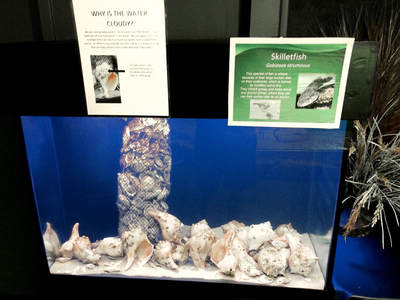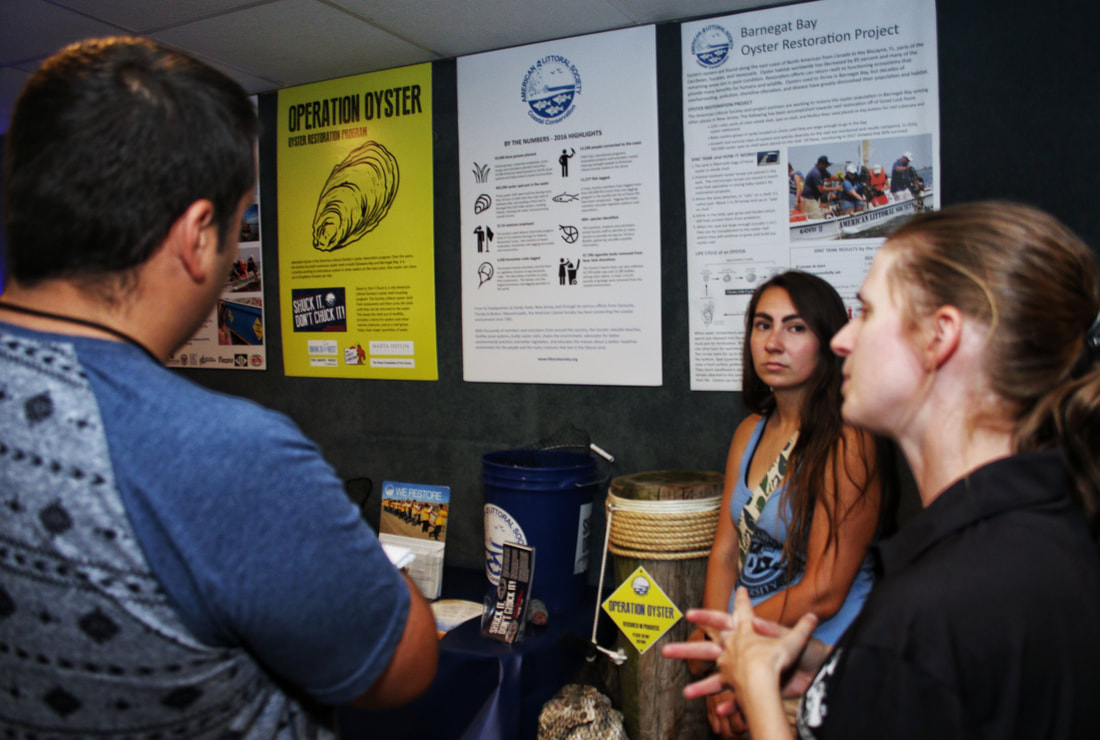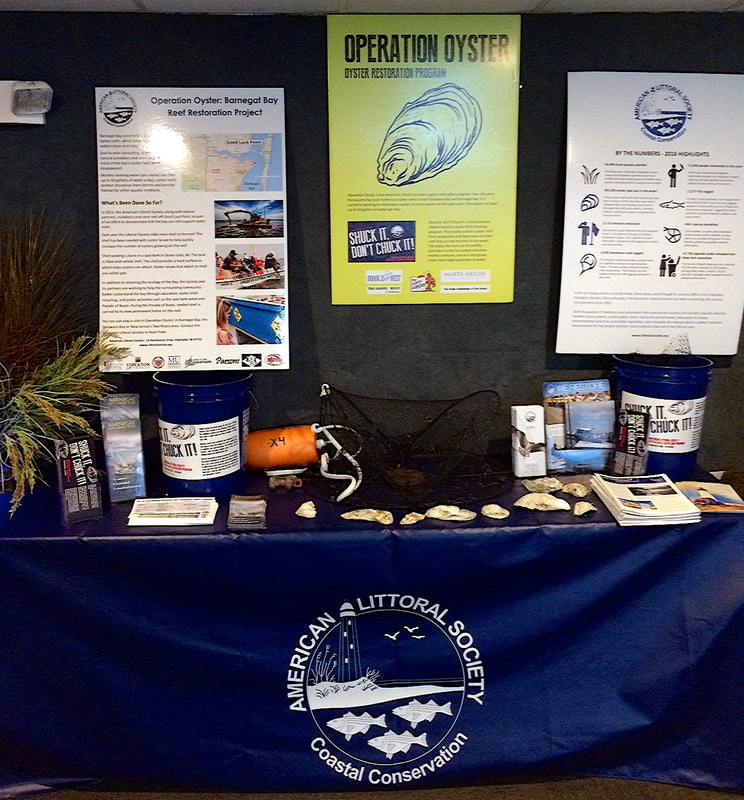|
Please stop by our Operation Oyster: Barnegat Bay exhibit on the second floor of Jenkinson's Aquarium in Point Pleasant, NJ. The exhibit is part of a series of oyster-oriented projects and events the American Littoral Society has embarked on this summer. The exhibit at Jenkinson's is centered on a small spat tank in the aquarium. The tank is filled with shell bags that have been seeded with oyster larvae. The exhibit includes displays focused on the Society's work in Barnegat Bay, the history of oysters in New Jersey's coastal waterways, and why it would be beneficial to re-establish oyster reefs. Eventually, the Jenkinson's spat tank will become a living oyster reef that will include other marine species that typically make their homes in such habitats. The Society will also be working in partnership with Jenkinson's Aquarium on a reef in a much larger tank. That tank will help determine how long oysters need to spend in a controlled environment before being placed in a natural habitat and other factors that may affect oyster survivability.  In conjunction with the aquarium event, the Littoral Society held the third-annual seeding of its spat tank on the Wildwood Avenue pier in Ocean Gate, NJ on Monday, July 10. Then, on Thursday, July 27, those oyster babies were delivered from the Ocean Gate tank to their permanent home in Barnegat Bay during a parade of boats. That home is a reef the Littoral Society established in 2015 off Good Luck Point in Barnegat Bay. Jenkinson's Aquarium provided the oyster larvae for all of the Society's spat tanks this summer. Plans are to conduct sampling of the Barnegat Bay reef in October, so that oyster growth rates can be compared to the controlled environment at Jenkinson's Aquarium. The oyster nurseries and reef are part of Operation Oyster, a Littoral Society project aimed at putting oysters back into New Jersey's bays and tidal estuaries. Decades of pollution, accelerated by rampant development, have decimated New Jersey's natural oyster population. Oysters help keep water clean and oyster reefs help protect the coastline. They are nature's water filters, each one is able to clean up to 50 gallons of water a day. Oyster reefs also serve as speed bumps for waves during storms. Operation Oyster includes the "Shuck It, Don't Chuck It!" shell recycling program and the Bags on the Bay program. A dozen restaurants in Ocean and Monmouth counties participate in the "Shuck It, Don't Church It!" effort, including The Anchor Inn and Shady Rest Restaurant. Bags on the Bay is a project to determine whether New Jersey bays and estuaries have oysters still living in them. It was recently expanded to include a study in the Navesink and Shrewsbury rivers. The "Shuck It, Don't Chuck It!" program is supported by The Lusty Lobster and a grant from the Marta Heflin Foundation. It was created as a way to reduce waste going to landfill and as an inexpensive method to obtain material for building oyster reefs. For more information about Operation Oyster, contact Pim Van Hemmen, Asst. Director of the American Littoral Society, at 732-291-0055 or email [email protected]. Comments are closed.
|
Archives
July 2024
Categories
All
|



